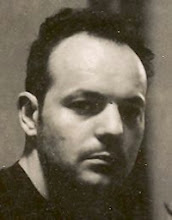Rx For Iraq
We shouldn't have gone into Iraq but did. Anyone with half a brain should have known that to do so would be like opening Pandora's Box; no one had a clue of what the consequences would be, how the Arabs in the region would react, and what future relations with them would be. So, now what?
Well, doing what we are doing now is obviously not the answer. So what is? The one thing needed before any progress, politically and economically, can be made is the establishment of security; for the troops and more importantly for the Iraqis. Seems simple enough, so why aren't we doing it? Because politics are taking front stage over good military necessity; like it was in Vietnam.
We are losing credibility fast, as well as any good will we may have had for getting rid of Saddam, because we can't provide security and provide a sense of normalcy for the Iraqis. If the Iraqis were not mad at us before the invasion they are now as more and more Iraqis are dying everyday. So how do we 'solve' the problem?
By biting the bullet; by sending in more troops. We need a minimum of 175,000 to 250,000 troops in Iraq in order to put the "big clamp" on the "insurgents". As it is now we "stamp" out one insurgent redoubt only to have it move to somewhere else, all the while bombs are going off.
Movement needs to be controlled, people identified, and arms caches found and destroyed. That takes lots of troops.
It can be done; the Germans did it in France during WWII. France, in fact, is a good model for putting "The Big Clamp" on a populace.
Every Iraqi citizen needs to be identified, fingerprinted, photographed, and issued an identity card. As a double-check citizens will have to "vouch" for each other as a verification of who they say they are.
The country can then be divided up into regions and districts and people's movement restricted between regions using a travel permit system. The identity system makes it easier to control movement and to spot possible insurgents.
Each region, or province, would have several district offices where records would be kept, travel permits issued, and other bureaucratic duties performed.
Before whole-scale repair of the infrastructure can be implemented security must first be established; this is where some of those troops come in. Since large projects are particularly vulnerable to attack because of the numbers of workers involved and the propaganda potential these sites need added protection. Large numbers of people equals a target of opportunity. For some reason this fact hasn't sunk into the Iraqi or U.S. consciousness. Bombers are still hitting at unprotected gatherings.
Insurgents can strike anywhere and at anytime if allowed to do so. Restricting their movements denies them intelligence as well as opportunities to attack.
All this seems simple to do. Just put in more troops and establish an identity and travel permit system. No it is very difficult to do and the populace wouldn't like it, but what is the alternative? Go on year after year and hope for breaks; that the odds in time might favor the U.S. and it's pro-U.S. Iraqi government?
Our goal in Iraq still has not been defined. What is our definition of "win". Does "win" mean our total withdrawal from Iraq? Or does it mean 100,000 troops scattered about Iraq "unseen" for decades to come? What was and what "is" the goal in Iraq?


0 Comments:
Post a Comment
<< Home